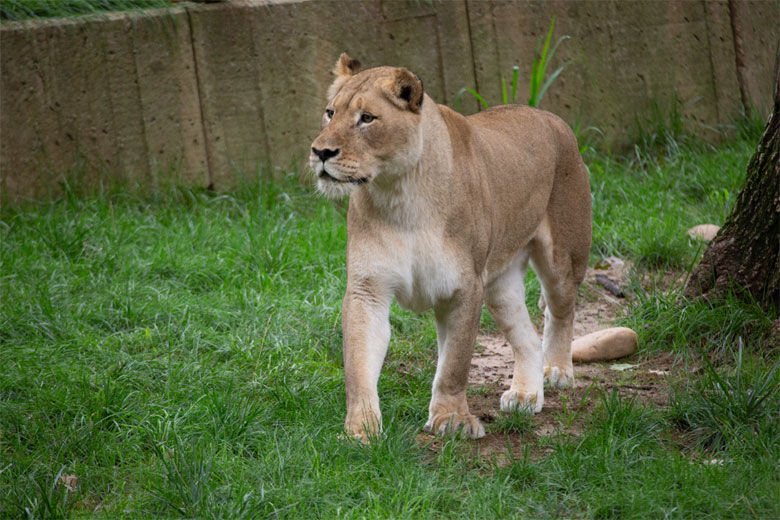
A female African lion named Nababiep, fondly known as Naba, died on Monday, the Smithsonian National Zoo and Conservation Biology Institute announced Tuesday.
Naba was 18 years old.
A news release from the zoo said the lion had been ill for several months.
In March, zookeepers noticed Naba was chewing excessively but not eating all of her food. Zookeepers later observed some dental issues, and blood tests showed chronic renal disease, “both of which can be common in older lions,” according to the news release.
Veterinarians at the zoo recommended medications to alleviate Naba’s pain and tried ways to encourage her to eat. However, her situation worsened over the months.
During a complete veterinary exam last Friday, vets discovered a new dental problem but were “cautiously optimistic” that she could get better.
“However, she did not eat well, was not defecating throughout the weekend and her discomfort was noticeable to the team,” the zoo said. “Concluding that further attempts to investigate Naba’s illness would be invasive and difficult on her, the team made the hard decision to euthanize Naba.”
A necropsy performed after Naba’s death revealed a large mass in her small intestine and a cystic lesion in her brain, the zoo said.
Naba was born in 2004 at a private reserve in South Africa, and was brought to the National Zoo in October 2006 after a breeding recommendation from the Association of Zoos and Aquariums’ Species Survival Plan.
According to the news release, Naba was one of the most genetically valuable lions in North America because her genes weren’t represented in any American zoos at the time. She, along with her mate Luke, gave birth to five cubs, which were relocated to North American zoos for breeding, research and “to act as ambassadors for their species,” the news release said.
The news release said an estimated 20,000 lions remain in the wild. Lion populations have declined around 30% in the past decade and African lions are classified as vulnerable.








